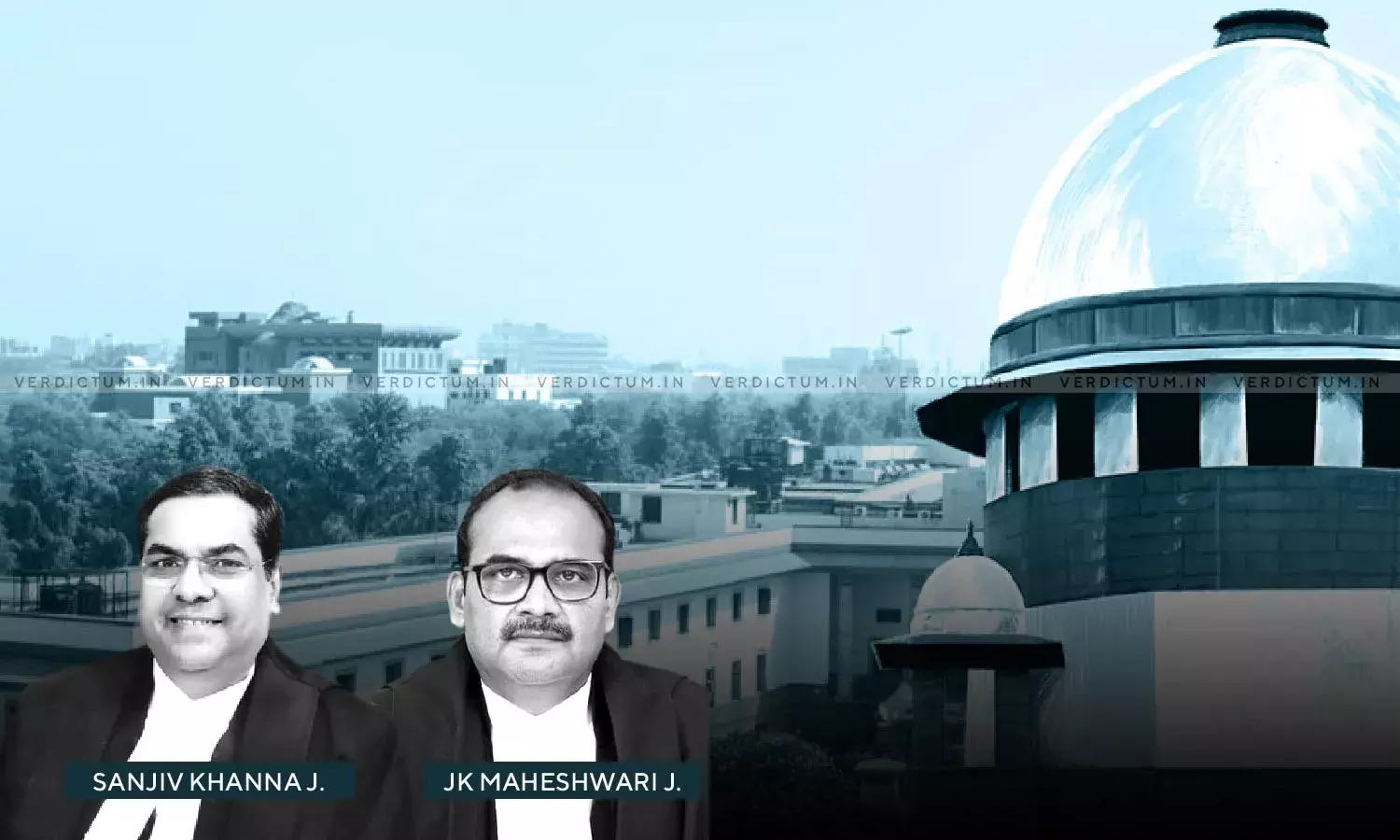Mere Wrong Demand Won’t Meet Conditions Of Section 405 IPC In Absence Of Evidence For Entrustment, Dishonest Misappropriation: SC

The Supreme Court while dealing with a criminal appeal filed against the order of the Allahabad High Court has recently held that a mere wrong demand or claim would not meet the conditions under Section 405 of the Indian Penal Code in absence of evidence to establish entrustment, dishonest misappropriation, and conversion.
A two-Judge Bench of Justice Sanjiv Khanna and Justice J.K. Maheshwari held –
“… in the instant case, materials on record fail to satisfy the ingredients of Section 405 of the IPC. The complaint does not directly refer to the ingredients of Section 405 of the IPC and does not state how and in what manner, on facts, the requirements are satisfied. Pre-summoning evidence is also lacking and suffers on this account. On these aspects, the summoning order is equally quiet … A mere wrong demand or claim would not meet the conditions specified by Section 405 of the IPC in the absence of evidence to establish entrustment, dishonest misappropriation, conversion, use or disposal, which action should be in violation of any direction of law, or legal contract touching the discharge of trust. … In the absence of factual allegations which satisfy the ingredients of the offence under Section 405 of the IPC, a mere dispute on monetary demand of Rs. 6,37,252.16, does not attract criminal prosecution under Section 406 of the IPC.”
The Bench further observed that in order to apply Section 420 of the IPC, namely cheating and dishonestly inducing delivery of property, the ingredients of Section 415 of the IPC must be satisfied.
Advocate Syed Jafar Alam appeared on behalf of the petitioners while Advocate Sarvesh Singh Baghel and Advocate Mayuri Raghuvanshi represented the respondents.
In this case, the Allahabad High Court dismissed the petition of Jotun India Private Limited (JIPL) challenging the summoning order passed by the Additional Chief Judicial Magistrate. JIPL and the respondent had entered into dealership agreements for the supply and purchase of decorative paints in the State of Uttar Pradesh and Delhi region respectively. JIPL filed two separate criminal complaints under Section 138 of the Negotiable Instruments Act against the respondent on account of dishonor of the cheque. The cheques were dishonored due to ‘insufficient funds’. Thereupon, a legal notice of demand was issued on behalf of JIPL but the same got returned by the postal authorities.
The Apex Court held, “....assertions made in the complaint and the pre-summoning evidence led by respondent no. 2 - complainant fail to establish the conditions and incidence of the penal liability set out under Sections 405, 420, and 471 of the IPC, as the allegations pertain to alleged breach of contractual obligations. Pertinently, this Court, in a number of cases, has noticed attempts made by parties to invoke jurisdiction of criminal courts, by filing vexatious criminal complaints by camouflaging allegations which were ex facie outrageous or pure civil claims. These attempts are not be entertained and should be dismissed at the threshold.”
It was further noted by the Court that it is obligatory upon the Magistrate to inquire into the case himself or direct investigation be made by a police officer or such other officer for finding out whether there is sufficient ground for proceeding against the accused and that in the present case, the said exercise has not been undertaken.
The Court while disagreeing with the High Court’s decision observed, “We must also observe that the High Court, while dismissing the petition filed under Section 482 of the Code, failed to take due notice that criminal proceedings should not be allowed to be initiated when it is manifest that these proceedings have been initiated with ulterior motive of wreaking vengeance and with a view to spite the opposite side due to private or personal grudge. … The inherent powers of the court can and should be exercised in such circumstances. When the allegations in the complaint are so absurd or inherently improbable, on the basis of which no prudent person can ever reach a just conclusion that there is sufficient wrong for proceeding against the accused, summons should not be issued.”
Accordingly, the Court allowed the appeal and set aside and quashed the order of the High Court.
Cause Title- Deepak Gaba and Others v. State of Uttar Pradesh and Another
Click here to read/download the Judgment


